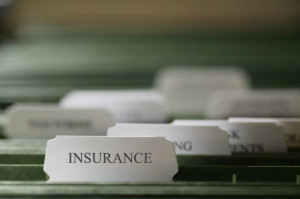 If you’re starting a small business or managing a startup you probably know firsthand that one of the things you can never have enough of, is money. When money gets tight, small businesses often begin cutting corners, and one of the many corners they tend to cut is adequate insurance coverage. As a result most new businesses leave themselves one or two claims away from bankruptcy and financial ruin.
If you’re starting a small business or managing a startup you probably know firsthand that one of the things you can never have enough of, is money. When money gets tight, small businesses often begin cutting corners, and one of the many corners they tend to cut is adequate insurance coverage. As a result most new businesses leave themselves one or two claims away from bankruptcy and financial ruin.
Because every state has different laws regarding insurance, this article will only focus on the types of insurance available and what they’re meant to cover. If you’d like to understand the insurance laws as they apply to your state, you’ll need to contact your local small business association or speak with an attorney in your local area.
Already know the type of insurance you need? Get free business insurance quotes online. Otherwise, here are six insurance policies that can help protect your startup.
1. General Liability Insurance – You should have a general liability policy in place before your first day on the job. Actual coverage may vary from policy to policy but this insurance typically protects against claims of property damage and bodily injury. It may be difficult to imagine a scenario where your business causes someone else to get injured, sick, or killed. But if it happens general liability insurance is there to help. The premiums are usually low, and if you’re starting a business, you definitely need the protection general liability insurance offers.
2. Workers Compensation Insurance – Workers comp is designed to compensate employees who suffer work related injury or illness. An injured employee gives up their ability to sue their employer in return for a guaranteed amount of coverage, regardless of who is at fault. Workers comp will pay all medical expenses related to the injury or illness, but also lost wages that result from the injury. Where I am from this is only required if a business has one or more employees, excluding the owner.
3. Umbrella Insurance – Umbrella insurance fills in the gaps left by other policies and is considered one of the best ways to protect your business. For example, if you have a general liability policy that covers up to $1 million dollars, but a lawsuit against you is settled for $2 million, then your umbrella policy would trigger to cover the extra million left untouched by the general liability insurance. If you want to provide maximum coverage for your startup, umbrella insurance is a great place to start.
4. Property Insurance – A property insurance policy covers structural and material damage or loss. For instance, if a thief breaks in and steals computers, property insurance will cover this. The same goes for fires, floods, damage from storms, and acts vandalism. It’s important to note that some policies may not include coverage for floods, so you’ll need to check your policy to be sure. If you need it, you can take out a special flood insurance policy.
5. Commercial Auto Insurance – If your business has a car, van, or truck you need commercial auto insurance. In some states driving your personal car for business purposes may require a separate or additional policy. Because the financial risk to your business from an auto accident is high, securing adequate auto insurance is something you cannot afford to go without.
6. Professional Liability – Professional liability insurance covers claims against intangibles like inaccurate advice, misrepresentation, negligence, and violations of good faith or fair dealing. This means, if you regularly give advice or provide a professional service, you should have professional liability insurance. This will protect you if a client makes a claim against the advice or service you provided.
Risks vs. Benefits
Starting a small business or startup is expensive. Instead of cutting corners on insurance to save money, think about the risks you’re exposing your business to. Most premiums are affordable, and the level of coverage is high. I’d like to reiterate that it really doesn’t make much sense to go without protection. After all, when you’re already strapped for cash, risking an insurance claim is like flirting with bankruptcy.
Kevin Kerridge is the Director of small business insurance at Hiscox, a global insurance company with 100+ years of experience.
The contents of this article and the linked materials do not offer legal, business, or insurance advice related to the needs of any specific individual business. Please consult your attorney, insurance agent or other professional advisor to obtain appropriate legal or other expert advice.